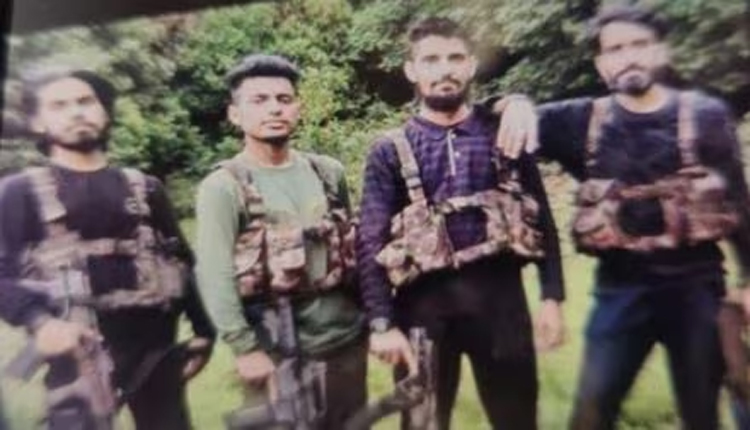Pahalgam: Though everyone’s eye is on how the pahalgam terrorist did such Violence which took 26 people’s lives here, a chilling report revealed. This report is based on new information that has recently surfaced during crime scene investigations. Multiple sources indicate that the terrorists executed the massacre after receiving training identical to that provided to elite commandos through training from Pakistan’s Special Service Group (SSG). The National Investigation Agency’s (NIA) evidence shows that the terrorists planned to kill as many Indian security personnel as possible while trying to destabilise the region.
The perpetrators executed this precisely targeted assault against tourists while visiting ‘Mini Switzerland’ at the peaceful Baisaran Valley. LeT operatives undergoing detention at Jammu and Kashmir jails revealed through interrogation that their attackers stood as advanced combatants rather than standard militants. Pakistan’s SSG commando training became the foundation for their education, which gave them expert skills to manage complex weapons systems while finding their way and surviving harsh terrains.
A critical suspect identified by investigation agencies includes Hashim Musa, who served as a Pakistani para-commando before becoming an LeT terrorist and taking part in the attack. The investigative sources show that Musa formed a dangerous unit composed of Pakistani nationals, including Ali Bhai, and local recruits such as Adil Hussain Thoker for executing the assault. The reconnaissance efforts performed by the group for Baisaran and three other region-based targets started on April 15, demonstrating their deliberate operational strategy.
South Kashmir displays a wide network of overground workers (OGWs) according to NIA investigations because they facilitate the attackers by providing them with shelter, weapons and transportation. Local networks and commando-level training allowed the attackers to avoid security detection, which enabled them to perform the most destructive civilian strike in Indian history beyond the 2008 Mumbai attacks. The investigation reveals ISI connections to the attack, which has created new concerns regarding Pakistan’s support of terrorist activities.
Security agencies focus their investigative efforts on hunting down fifteen terrorist commanders inside Kashmir Valley, where most leaders belong to foreign nationalities that oversee small terror operations. Security forces strive to locate these highly skilled operatives since their expert skills make them dangerous threats against military establishments and regular civilian populations. Search operations have been conducted widely by the Indian Army together with paramilitary forces and Jammu and Kashmir Police in South Kashmir’s dense forests because the attackers remain hidden there.
The disclosure increased diplomatic tensions between Pakistan and India when New Delhi accused its neighbour of supervising the operation. India recently took significant diplomatic steps as well as abolished the Indus Waters Treaty to show its concern about the ongoing crisis. The nation continues to mourn those killed during the attack because twenty-five Indian tourists and one Nepali citizen lost their lives.
Speaking to his nation, Prime Minister Narendra Modi declared his commitment to track down the attackers to any location on the planet. Security forces remain vigilant while the National Investigation Agency intensifies its investigation of the terror module to ensure that the Pahalgam attack stands as a warning against lingering threats of cross-border terrorism that confront security efforts to secure the Valley.



Comments are closed.